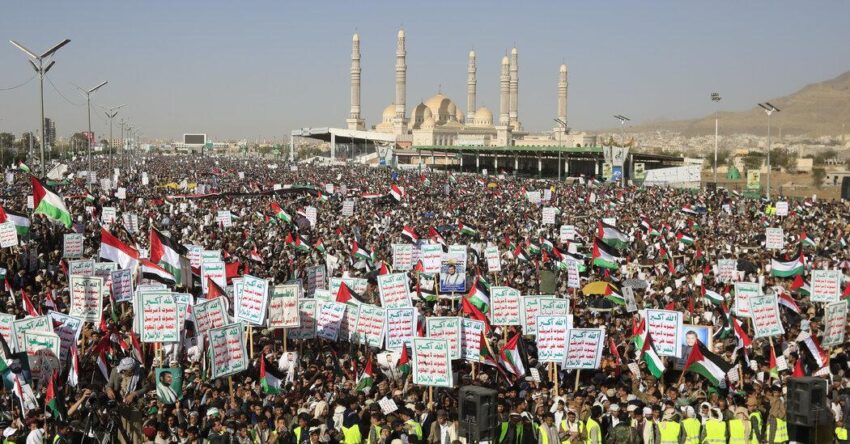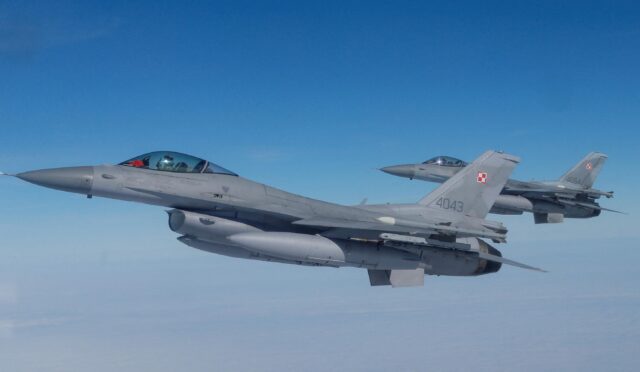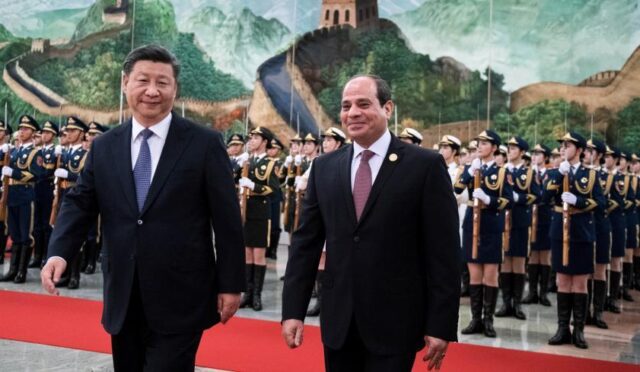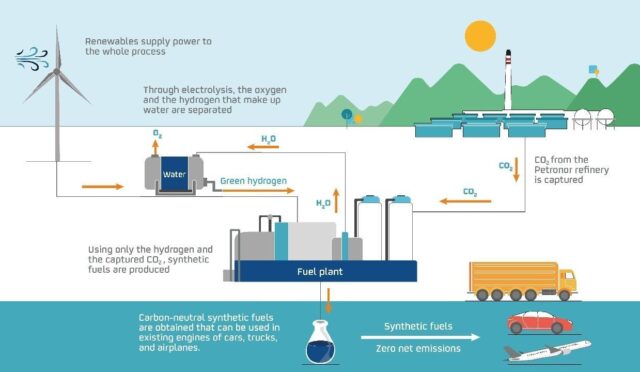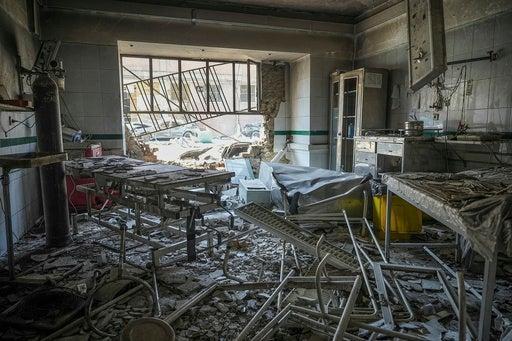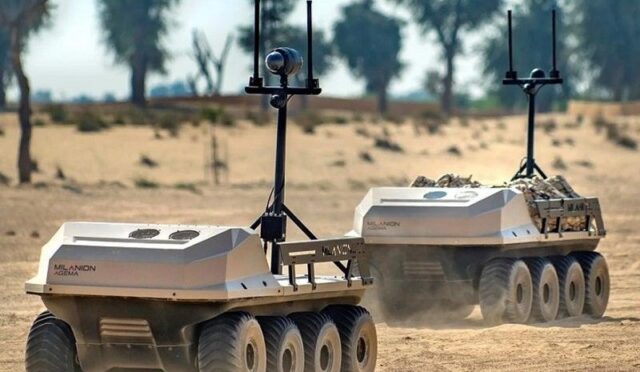US Strikes in Yemen Kill 31 Amid Rising Tensions
The first US military strikes in Yemen since Donald Trump’s presidency have resulted in the deaths of 31 individuals, according to reports from the Houthi rebels. This escalation comes as Trump warned that “hell will rain down upon” the Iran-backed Houthis if they do not cease their attacks on shipping interests in the region.
During this time of heightened conflict, the Houthis have been accused of attacking vessels in the Red Sea and Israeli targets amid the ongoing Gaza war. Eyewitness accounts from the rebel-controlled capital, Sanaa, describe intense explosions and increasing plumes of smoke. The Houthi health ministry has reported that among the deceased are children, and many of the injured are women and young people. Disturbing images broadcast on Houthi media depicted the aftermath of the strikes, showing injured civilians, including a young girl requiring urgent medical attention.
Trump’s Threats and Warnings
In a defiant statement on social media, President Trump emphasized a commitment to utilizing ‘overwhelming lethal force’ to combat the Houthis. He framed the rebels’ assaults as unjustifiable acts of terror aligned with Palestinian resistance during the ongoing conflict with Israel. Trump’s declaration warned that the Houthis’ time is running out, demanding an end to their attacks immediately.
Alongside his threats to Houthi militants, Trump directed urgent warnings toward Iran, the Houthis’ main backer. He categorically stated that support for the rebel group must stop immediately and cautioned that any further threats to American interests would not be taken lightly. The administration’s rhetoric reflects growing frustration with Iran’s role in Middle Eastern conflicts and its support for anti-US entities.
Houthi Response and International Reactions
The Houthis responded to the US strikes with defiance, asserting that these attacks will not go unanswered. Iran’s top diplomat condemned the strikes as unlawful, asserting that the United States lacks the authority to dictate Iran’s foreign policy direction. The Houthi-controlled media condemned what they termed Washington’s ‘criminal brutality,’ indicating a potential for retaliatory measures.
Meanwhile, the United States Central Command released footage of the airstrikes, characterizing them as ‘precision strikes’ intended to defend American interests and restore safety in commercial shipping routes. The Pentagon highlighted the ongoing crisis, stating that the Houthis had conducted hundreds of attacks on US naval and commercial vessels, causing significant disruptions in a region crucial for global trade.
Strained Relations and Escalating Conflict
The tense situation has increasingly strained relations not just between the US and the Houthis, but also between Washington and Tehran, as the fighting grips the historically impoverished nation of Yemen. The Houthis have maintained control over large portions of Yemen for years amidst ongoing conflict, positioning themselves as a significant player in the ‘axis of resistance’ aligned with Iran and opposing Western influence in the region.
On the global stage, the Palestinian group Hamas condemned the US airstrikes, labeling them a violation of international law and an affront to Yemen’s sovereignty. Iran echoed this sentiment, branding the airstrikes brutal and a violation of UN principles. As Trump’s administration continues to classify the Houthis as a foreign terrorist organization, diplomatic efforts involving Russia have emerged, highlighting the complexities of regional alliances and the urgent need for a political resolution to avoid further bloodshed.
The Ongoing Yemen Crisis and Future Outlook
The situation in Yemen remains precarious, with the Houthis having captured the capital, Sanaa, in 2014. Despite a temporary cessation of hostilities following a ceasefire agreement in 2022, the recent resurgence in violence underscores the fragility of peace prospects. Houthi attacks on Israeli and shipping targets have triggered fears of broader regional instability amid the ongoing Gaza conflict.
As the Trump administration focuses on military responses, experts are warning that a long-term solution remains elusive without meaningful political dialogue. Houthi militants have announced their intention to resume hostilities until Israel’s blockade of aid to Palestinian territories is lifted, setting the stage for potential further escalation of conflict unless diplomatic efforts can successfully navigate these turbulent waters.
